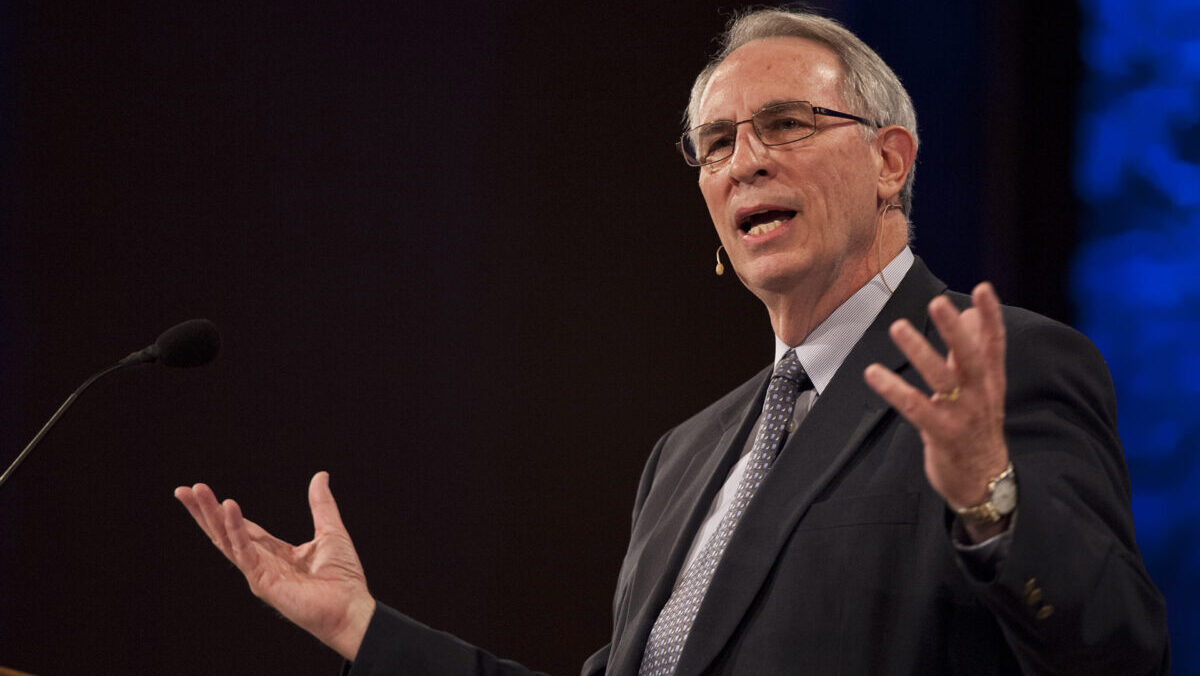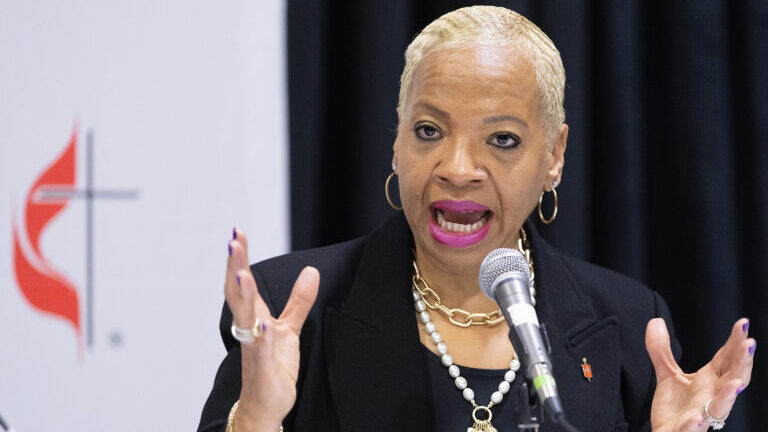Dear pastor,
Finishing the following sentence will help you know whether these tips are something for you to consider:
You might be an angry pastor if …
- You always shake your fist when you preach.
- You blame everything on actors and politicians.
- You rant on social media about, well, everything.
Although anger is a normal emotion, there’s an invisible line we cross when our healthy anger becomes harmful to others.

Here are four solutions I’ve found helpful.
- Guard your heart.
Jesus is the only one who can solve this heart issue. Since patience is a fruit of the Spirit, God can extinguish the anger we can’t manage.
So, when my blood begins to boil, I … simply pray for patience.
“Be angry and do not sin; on your bed, reflect in your heart and be still … and trust in the Lord” (Ps. 4:4).
- Control your tongue.
Even as I write this in an airport terminal, I’m waiting on my second delayed flight of the day. The temptation to transfer my frustration onto innocent airline workers is real, but it’s never helpful.
“The intelligent person restrains his words, and one who keeps a cool head is a man of understanding” (Prov. 17:27).
- Protect your pulpit.
All Christians need to guard our hearts, tongues and social media posts carefully — but pastors even more so. What we say on stage is heavily measured not only on earth, but in heaven (James 3:1).
A pastor once told me his church was having “multiple dumpster fires.” As a noun, Webster defines dumpster fire as “an utterly calamitous or mismanaged situation or
occurrence: disaster.”
All churches have these … just make sure you’re not the arsonist.
“Let your speech always be gracious, seasoned with salt, so that you may know how you should answer each person” (Col. 4:6).
- Dress for success.
More than a decade ago, I was well on my way to becoming the angry preacher I’m warning about here. I committed the following passage to memory by meditating on it every day for almost a year.
“Put away all the following: anger, wrath, malice, slander and filthy language from your mouth … since you have put off the old self with its practices and have put on the new self. … Therefore, as God’s chosen ones, holy and dearly loved, put on compassion, kindness, humility, gentleness and patience, bearing with one another and forgiving one another if anyone has a grievance against another. Just as the Lord has forgiven you, so you are also to forgive. Above all, put on love, which is the perfect bond of unity” (Col. 3:8–10, 12–14).
EDITOR’S NOTE — This story was originally published by Baptist Messenger.
Letters to the Editor
Thank you for publishing Mark MacDonald’s article “5 communication tips to help churches connect with preteens” in the Feb. 29 issue of The Baptist Paper. I share his concern about the Barna Group’s report revealing how many 8- to 12-year-olds are drifting away from biblical Christianity and are increasingly likely to abandon it. The biblical foundations of faith in our culture are being torn away, and that is alarming!
Faithful Christ-followers and members of local churches need to prayerfully consider ways to communicate with and minister to (reach, come alongside and make disciple-makers) preteens.
While MacDonald’s tips are excellent suggestions for ministry to preteens, the implications of implementing them within the church body would be staggering and have an eternally significant impact on the church, community, city, state, nation and the world.
Please pray with me that our churches will build upon the foundation of sound biblical theology by incorporating authenticity and transparency, meaningful disciple-making relationships, Scripture-driven intellectual exploration, exploring biblical truth and its practical application and biblical discipline. And that, by God’s grace, our churches will be strong, vibrant communities of faith that are equipped and energized Christ-followers living out our faith moment by moment.
Shirley Crowder
Leeds, Alabama
Protecting church fellowship
By David L. Chancey
McDonough Road Baptist Church, Fayetteville, GA
Several years ago, NASA launched its unmanned rocket Antares that was tasked with bringing supplies to the International Space Station.
Six seconds after take-off, Antares suffered a “catastrophic anomaly” and exploded.
One early newscast suggested the rocket was veering off course and scientists on the ground destroyed it. That report proved inaccurate.
The rocket’s first stage engines were identified as the cause of the failure.
Catastrophic mishap
NASA used a different engine for subsequent launches.
As I read about the catastrophic mishap, my thoughts jumped to another catastrophe: churches struggling with conflict undermining and endangering the fellowship.
I thought, that’s what happens when churches take their eyes off the Lord and their focus off their Christ-given mission.
They open themselves up to problems that could cause the church to crash and burn.
Sharing life together
The church’s fellowship is a gift requiring intentional enriching and protection.
Fellowship is more than small talk over coffee before the Bible study starts, or a quick greeting at welcome time during the worship service. New Testament fellowship is deeper.
Fellowship is the sharing of life based on our common experience with Jesus and our common desire to live for Jesus. God expects us to take good care of His gift of fellowship.
After 33 years as a pastor, I’ve learned important lessons about handling the stress that comes with ministry. Here are 5 strategies that have helped me and will hopefully help you …
- Plan your preaching in advance. I take a week each year to plan all sermon series, titles and texts for the next year. This greatly reduces the weekly stress of deciding what to preach and helps me stay organized and focused.
- Start sermon preparation early. Every Monday, I begin preparing for Sunday’s sermon, even if it’s just a small start. This approach puts me ahead for the rest of the week and reduces the stress of sermon preparation.
- Build and trust your team. Gathering a team of committed and capable individuals is crucial. Delegate tasks effectively and trust your team to handle them. This can significantly decrease your workload and stress.
- Engage in physical activities and hobbies. Regular exercise and hobbies are essential for mental and emotional relief. Find an activity you enjoy enough to stick with, whether it’s sports, reading, fishing or woodworking.
- Prioritize rest and downtime. A good night’s sleep and taking regular days off are crucial. It’s important to balance work with rest, as this is not only beneficial for your health but also for your ministry.
Ministry is a fulfilling yet challenging path. These strategies have helped me navigate its pressures and may be beneficial for other ministers. Sharing experiences and strategies can be a great way to support each other in this journey.
Stephen Rummage
@StephenRummage on X
The call to preach is a call to stand on the frontline of the war between the spiritual evil that has captured humanity and the truth of the gospel that sets all men free.
The weekly task of sermon preparation is of great significance. Pray, prepare and preach in the power of Christ our Victor.
Pray for your pastor!
Ronnie Parrott
via Facebook
Five unwritten rules of ministry:
- Ministry is work. Hard work.
- Remember those you pass on your way up; you’ll see them again on your way down.
- The minute you announce you’re leaving, you’re part of the church’s history, not its future.
- When you leave a church, leave. Don’t go back for weddings or funerals or to hang out with folks without contacting the new pastor.
- Guard your soul, family and time because nobody else will.
Bonus: You can’t make new, old friends. So don’t take the ones you have for granted.
Brad Whitt
@DrBradWhitt on X
It’s no coincidence that Gen Z is the first to come of age in a post-Christian culture, suffers from an epidemic level of anxiety, and is characterized by widespread gender confusion. They’re answering major questions of identity with little more than their emotions to guide them.
Katie McCoy
@blondeorthodoxy on X
One of our callings as parents is to teach our children to be those who tell the truth — and require our children to be truth tellers. Society itself depends upon a request for and a commitment to the truth.
Al Mohler
@albertmohler on X
The harder thing to do & the right thing … are usually the same thing.
Dan Orlovsky
@danorlovsky7 on X
Good boundaries will help me be more compassionate (and) more gracious. Good boundaries help us keep the best of who we are intact.
Lysa TerKeurst
@LysaTerKeurst on X
Prayer is a better option than anxiety or anger.
Isaac Adams
@isickadams on X









